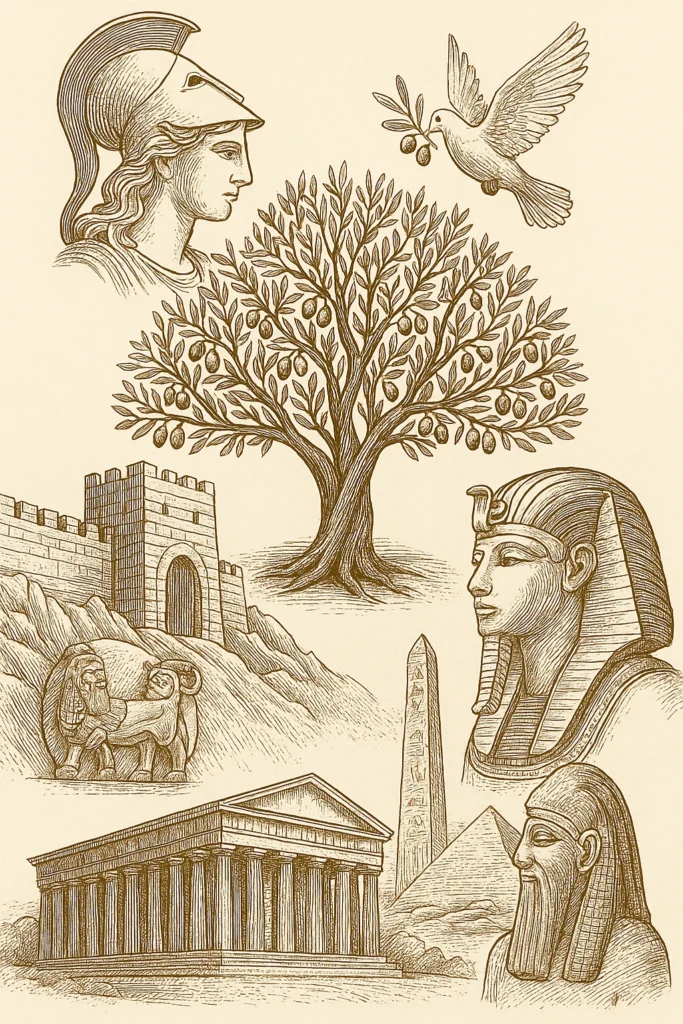For thousands of years, the olive has been more than food—it has been a shared symbol across cultures and civilizations. Representing peace, hope, and abundance, this ancient tree holds a sacred place in Anatolia’s rich mythology. Today, the olive oil we bring to our tables is a continuation of these timeless symbols.
When the Great Flood ended, a dove returned to Noah’s Ark carrying an olive branch. That branch became a universal emblem of peace and renewal, marking one of the earliest moments in mythology where the olive carried hope and harmony to humankind.
In Greek mythology, the olive tree was the gift of the goddess Athena. Symbolizing wisdom and peace, the olive established Athens as a city blessed with prosperity. Across Anatolia, too, many civilizations considered the olive sacred—offering it in temples, celebrating it as a source of fertility, and treasuring it as a divine blessing.
From the Hittites to the Lydians, and from Rome to Byzantium, the olive was more than sustenance. It became a cornerstone of trade, culture, and daily life, with ancient groves silently witnessing the rise and fall of civilizations.
The olive oil we use today is not just a culinary ingredient; it is the living continuation of a cultural legacy that spans millennia. Each drop carries the myths of the past and the heritage of Anatolia into the present.
At Savia, we draw inspiration from this deep mythology, presenting olive oil not only as flavor but as a story of life. Just as in the past, today the olive remains a symbol of peace, health, and abundance.

